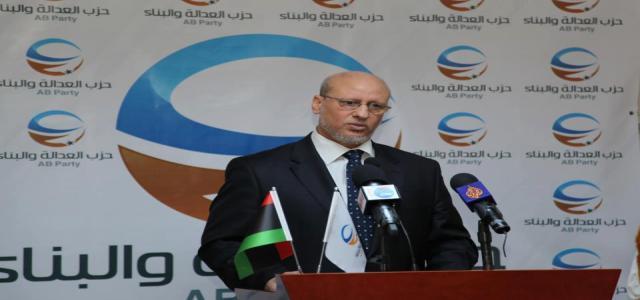- March 26, 2006
- 12 minutes read
Interview with Research Director at Saban Center for Middle East Policy

Interview with Dr. Kenneth Pollack, Director of Research at the Saban Center for Middle East Policy
Tw: What are you hoping that this new analysis paper “A Switch in Time “for which you are the principle author, will actually achieve considering the fact that we have heard so many people say previously that the way the United States is handling the situation in Iraq is not working and that there are better ways of doing things, yet arguably things have not changed that much? Do you have any reason to expect that this paper may produce some positive changes on the ground?
Well, first, it may. In some ways our purpose in doing so stems from the first point that you made. There is a pretty good concensus that the way the United States has been handling the situation in Iraq has not been successful. That begs the question, what would a strategy that could be successful look like? It is something that has been noticeably absent from the public debate. Other people are willing to say that there are better ways to do things and then when they are asked, well, what are those ways? they sayLet me get back to you. So this was an effort to bring together a non-partisan group that would draw up what a strategy that would simply be a baseline for debate. It is important for policy makers to have before them an idea of what would be required if they were to sign up for this policy. So that is the first goal. In resposnse to your second question, I think that there is evidence that there are elements within the US government that are willing to makes changes, that have made changes over the course of time, and in some cases have had some success with the changes. Typically, these people are at lower levels in the military, in the State Department, and a few other places. They tend to be working-level officials who actually have some understanding of things, such as counter-insurgency or stability operations and they do make changes. Some of the changes have actually been helpful changes, though not always. Sometimes they’ve changed from one unsuccessful policy to another unsuccessful policy, but there are people who make changes and there are other people who I think are open to change, who understand that what we are doing is not working and therefore they are willing to look at alternatives. Now, is this going to change the way that the Bush administration does things? Probably not right away, but perhaps over time, it may. And that too I think is helpful. Because I will say while it would be very helpful for the United States to adopt this policy in toto, there are lots of solutions and suggestions in there and even if they don’t adopt it in toto there are probably a bunch of things they could pull out of it and if they start doing them it would help.
TW: In “A Switch in Time”, it is suggested that a political solution is the most viable solution to the problems facing Iraqis. Why should they have faith in this affirmation?
I think the most important reason is unfortunately the negative one that turning to the militias is probably the fastest route to trouble. The militias are not forces for stability and I think that the vast majority of Iraqis do understand that. They have remained hopeful. What is actually incumbent upon the United States and the new government of Iraq is that we actually have to start delivering because we have failed them so many times. The hope is out there and it will remain for some period, we don’t know for how long, and we shouldn’t assume it will remain forever. There has been a progressive hope when each government in Iraq has come to power, followed by unfortunately fairly rapid disappointments. So, the curve of popularity for these governments tends to start at a certain level and then plummet.
TW: “A Switch a Time” says that the United States has spent vast sums of money fighting insurgents and not enough money working on reconstruction in areas where it is welcomed. But even in areas such as Kurdistan, where people are more amenable to reconstruction, there has been violence. Does this mean that even these areas of the country have their own issues to work out?
Yes, I would agree with that. The problem is that Iraq is extraordinarily diverse. The rioting in Hallabja in some ways could actually be helpful because, quite frankly, there are a lot of Kurds, even Kurds in the leadership, who will tell you that the Kurdish government is itself corrupt and far from democratic and those things themselves need to change. The riots in Hallabja could be a very useful source of leverage for an American administration that wanted to press the Kurds for reform. Absent those riots, the Kurdish leaders are able to say that the people love them. The riots are a way of saying to them that they do have a problem and that they need to solve it. Now this presupposes an American administration that is aware of these root problems and that doesn’t just want to come up with a fig-leaf government and walk away from the problem.
TW: The report mentioned that a premature departure of coalition troops from Iraq would be an encouraging sign for Salafi jihadists. It seems that America’s presence in Iraq is also encouraging for these same people. Do you agree that this sort of catch-22 exists and how might we get out of it?
I do believe that that catch-22 exists. I believe that there are people who are angry with the United States and as long as we stay there that becomes a force for greater anger. It we were to leave it would be a source of recruitment and triumph. I think the only way out of that catch-22 is to actually fix things. The most important thing is that we are actually going to have this short-term problem. If Iraq falls into chaos, America’s reputation in the Middle East is garbage. If we can actually make Iraq into a stable place and into a real country, then I think that will burnish the image of the United States. It will also help to detract from the arguments of the Salafi jihadists, who say that the United States is there to colonize, and to get oil. I would also say that one of the great problems of American policy making is that we do focus on the short term. In this case the violence and the fact that we are inspiring people to join the resistance with our presence.
TW: “A Switch in Time”uses the phrase “sustainable stability” in describing what the goal Iraq should seek to attain. Could you please elaborate on what this phrase means?
It is a term that we came up with that basically means that Iraq needs to be stable and needs to remain a cohesive entity. We need an Iraq that is able to keep the peace without relying completely on us. What has to be our principle goal in Iraq is the creation of these institutions that can provide this stability. But it takes time to build these institutions.
I would disagree that building these sorts of institutions is impossible. Studies by the Rand Corporation point to instances where this has been possible.
TW: Why do you think that the United States has decided to sit down with Iran to discuss the issue of sectarian violence in Iraq?
It’s important to remember this idea is an Iranian one. The U.S. made that decision in the fall when Ambassador Khalilzad was able to persuade his superiors to allow him to meet with the Iranians. He essentially said that you can’t keep the Iranians out of the situation as they have a great deal of influence inside of Iraq. They could be helpful to us and, frankly, we need all the help we can get. I think this was one of those no-brainers out there. It was one of those practical things.
TW: Do you think there is any credibility to the theory that Iran and the United States are working to together to exerciser control over Iraq?
I think that that’s highly unlikely. I think the US and Iran do have some common interests but I would never exaggerate those common interests too far. You would also have to assume that the US-Iran nuclear confrontation was made up. This is a very serious issue.
TW:Do you think that Iran is in any way fearful of the United States since we have reemphasized the pre-emptive strike strategy in the National Security Strategy?
I don’t think they are. What I have seen from the Iranians over the last few years is that they typically seem to be maybe a bit overconfident. They think that America’s presence in Iraq is greatly constraining our military options, which is not untrue. It is not quite constraining our military options to the extent that they may think it is.
TW:How do you feel about the place of Iraq in terms of the future of American democracy promotion in the Middle East?
I think it’s very important. For better or worse, if things go wrong in Iraq, no one is going to want to listen to the United States. I think that even the American people will say that it was a mistake to try. If we succeed, people may think that we can succeed anywhere in this. In terms of Arab opinion, I have heard people who support reform see success in Iraq as important. Those who are less supportive are afraid that if reform in Iraq works, that the U.S. will get carried away without understanding what it will mean on the domestic scene in the Arab world.



